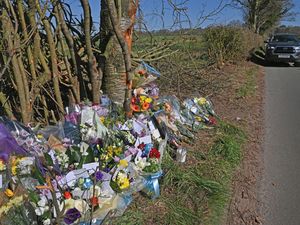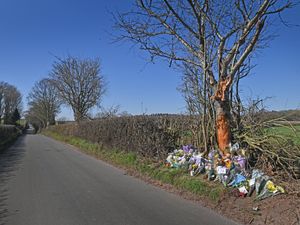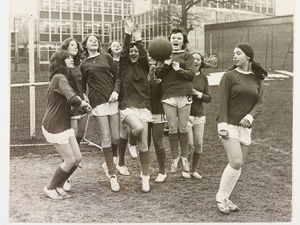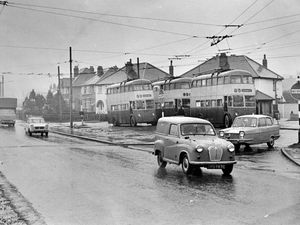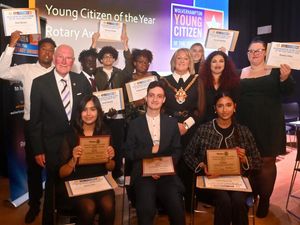Golden girl Anita Lonsbrough celebrates gold 50 years on
Can you imagine Olympic golden girl Rebecca Adlington clearing cockroaches from a pool before a key training session in the build-up to perhaps the biggest sporting day of her lifetime?
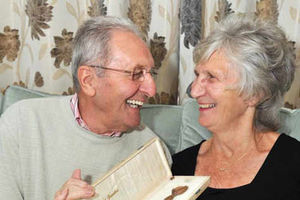
Can you imagine Olympic golden girl Rebecca Adlington clearing cockroaches from a pool before a key training session in the build-up to perhaps the biggest sporting day of her lifetime?
There would be outrage but that was what swimming's original golden girl - Anita Lonsbrough - had to do as she trained.
It is 50 years ago today that Anita won the 200m breaststroke at the Rome Olympics - the same week The Shadows were number one in the charts with Apache.
Let's put Anita's gold into some sort of context - particularly as we have tended to become a little 'medal drunk' after the successes of Beijing two years ago.
She and Don Thompson (in the 50k walk) got Britain's only gold medals at the games.
It took a further 48 years for another British female swimmer to take top place on the podium - the aforementioned Ms Adlington - despite the best efforts of several generations of talented competitors.
Anita's achievement is pretty special, especially as those were the days before the sport had World Championships - everyone trained for four years for the Olympics.
"It was the pinnacle, we all worked for four years for that competition," said Anita, at the home in Tettenhall, Wolverhamptonshe shares with her husband Hugh Porter, the ex-World cycling Pursuit Champion.
Her build-up to the games was a world away from that which a top sports star would expect today. Anita, living in Huddersfield at the time, was training three times a day but in a rather different environment.
"I tried to do one hour every morning , but I had to wait for the boilerman to open up and then I had to clear the cockroaches away. Then I'd do another 40 minutes during my lunch break (while working as a local government officer) and then I'd fit in another session in the evening depending on the availability of the pool," she said.
Then swimming was a completely amateur sport and it was a case of having to fit the training in around other commitments.
August 27, 1960, was a very hot day in Rome. Anita's final in the outdoor pool wasn't until the evening. She qualified second-fastest in her heat the previous morning.
She said: "I was really pleased as I'm not a great morning person, it meant that I'd be swimming in lane five.
"In those days there was more of an advantage in being in the middle lanes, which the fastest swimmers got."
Taking part in an Olympic final might mean a sleepless night for some — but not for Anita."I moved into a spare room away from the other athletes and was able to sleep for 12 hours so I didn't actually wake up until 9am," she said.
Breakfast and lunch followed but how to fill the long afternoon ahead of the final?
"It sounds a bit girly but I painted my nails," said Anita who then had to endure a further delay before her big moment.
"The men's 100m freestyle was on before mine and there was a difference of opinion as to who won the race. It meant that we were delayed for 10 minutes. My biggest rival (the German Wiltrud Urselmann) was pacing up and down and I was thinking 'You're wasting all your energy'."
When finally called to their blocks Anita noticed a rather different opponent.
"There was a fly in the water in my lane and I was worried that I was going to swallow it even though I was clearly going to dive over it!" she said.
The race itself went very much to plan.
"Urselmann had more speed than me so I was expecting her to lead early on. I was second at half-way which I was really pleased with then I wanted to catch her down the third length and pass her on the fourth and final length."
That's exactly what happened as Anita pulled away in the last 50 metres to win by half a body length. She was the Olympic champion. "At that point I just went numb, it didn't sink in immediately," she said.
From the pool it was on to the medal ceremony, watched by her mother, aunt and cousin. "There were no tears, which isn't like me, I really was in a daze," she said.
Before proper celebrations could start Anita did a live studio interview for the BBC 'in a wet swimming costume and tracksuit'.
She missed the opening ceremony because her heat was the next day and missed the closing ceremony because the British Olympic Association was trying to cut costs and she was flown home.
Four years later when she was chosen to carry the British flag at the opening ceremony of the Tokyo games. "It was a great honour being chosen by the heads of all the different sports and came right out of the blue." More honours came Anita's way after her success in Rome.
She and Thompson were rather bizarrely passed over for the BBC Sports Personality of the Year award that year in favour of the show jumper David Broome who got bronze.
Anita won that award in 1962 and in 1963 was created an MBE — the first amateur sportswoman to be honoured in such a way.
She retired after the 1964 Olympics and went on to enjoy a successful media career. She retains the same enthusiasm for the sport today that she had when clearing cockroaches away before long solitary sessions with just her and a clock for company. So is she jealous of the swimmers of today?
"No , they were very different times, you can't turn the clock back. All I hope is that they enjoy what they have."

